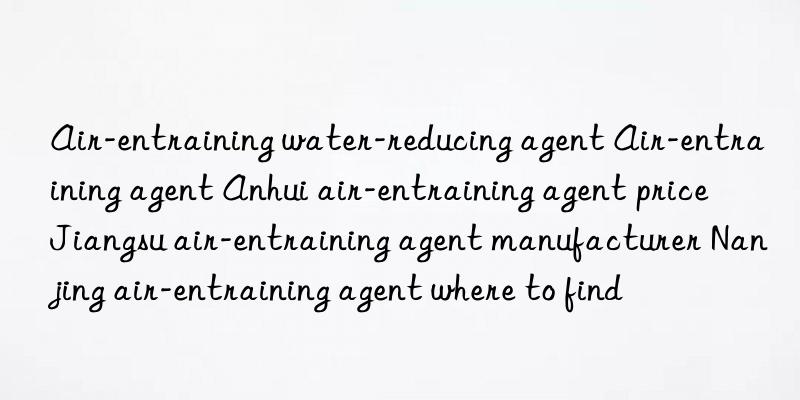
1. Product Introduction
This product is an anionic surfactant, which can significantly reduce the surface tension of concrete. It has the characteristics of no chlorine, low alkali, water reduction, retardation, and small slump loss. Adding this agent can improve the fluidity and plasticity of concrete, reduce bleeding and segregation, and increase the flexural strength by 10%-20%. The thermal diffusion and thermal conductivity of concrete mixed with this agent are reduced, and the volume stability of concrete and the weather resistance of various outdoor structures are improved. Air-entraining water-reducing agents are widely used in water conservancy, bridges, and road concrete, which is beneficial to extending the service life of roads. The most obvious advantage of air-entrained concrete is that it greatly improves durability, frost resistance and salt freeze resistance. The appropriate air content for concrete with frost resistance and durability requirements is 3-5%, and the air content should not be too large.
2. Scope of application
It can be used for concrete with high requirements on freeze-thaw resistance, anti-seepage concrete, sulfate-resistant concrete, concrete with severe bleeding, lean concrete, lightweight aggregate concrete, artificial Concrete prepared with aggregates, ordinary concrete and concrete with requirements for finishes. Concrete structures with high requirements on durability (especially frost resistance). Such as dams, airport runways, high-grade concrete highway surfaces, cooling towers, pools, port engineering and offshore structures, etc. Concrete roads and bridges with ice and salt removed in northern areas. Concrete projects with high requirements on construction and workability.
3. Implementation standards: GB8076-1997
4. Dosage and usage:
1. Dosage is 1.0-1.5% of the weight of cement, use The unit can determine the optimal dosage based on experiments. The dosage can be adjusted according to the trial mix.
2. Concrete mixed with this agent must be mechanically mixed, and the mixing time should be ≥3 minutes. The parking time from discharging to pouring of the concrete mixture mixed with this agent should not be too long. When inserting vibrator is used, the vibrating time should be ≥20s.
Five, packaging, transportation and storage:
This product is packed in a compound membrane woven bag, 40 ± 0.25 kg per bag. The shelf life is two years.
</p

 微信扫一扫打赏
微信扫一扫打赏

